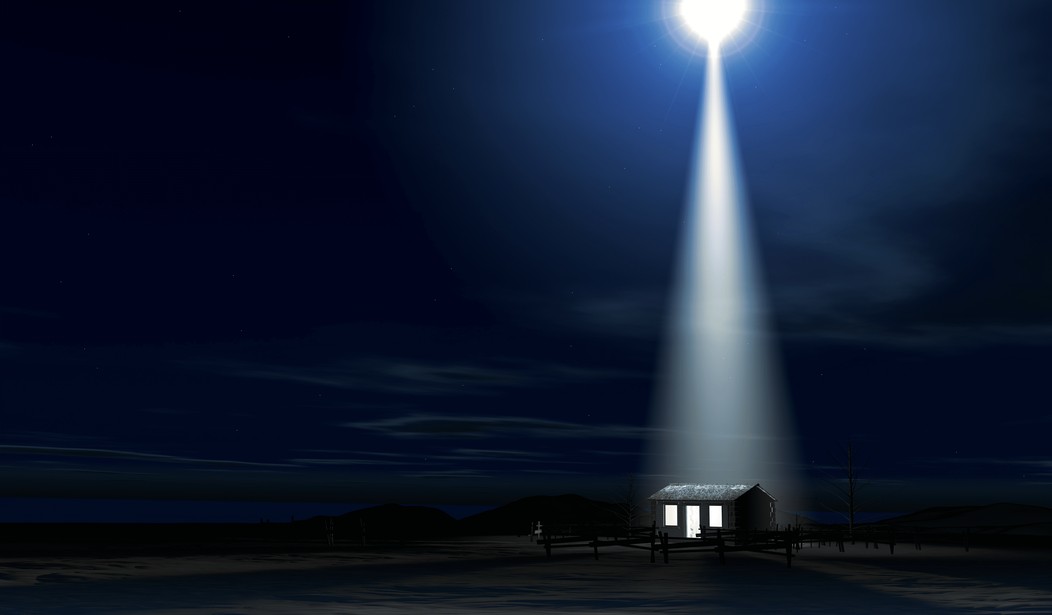Reverend Phillips Brooks greatly admired his president, Abraham Lincoln. He passionately preached the gospel at Trinity Episcopal Church in Philadelphia, and he passionately prayed for his country during the dark days of the American Civil War. He was a staunch abolitionist and ardently looked forward to the day when slavery would be eliminated from his beloved country.
Then one day in April of 1865 his president was killed. Rev. Brooks grieved deeply, especially when he went to view Lincoln’s body as it lay in state in Independence Hall — on its way to the final resting place in Springfield Illinois. With the deaths of hundreds of thousands and now Lincoln fresh in his mind, Brooks hardly knew how to deal with the grief.
A few months later the pastor decided to take a long trip — all the way to the Holy Land — at Christmas time. The journey included a horseback ride on Christmas Eve from Jerusalem to Bethlehem. Imagine what that must have been like on that starlit night. No sound of cars, buses, planes, radios, or phones going off … just the sound of the horse and its rider.
Brooks spent some time at the traditional site of the field where the angels appeared to the shepherds. He wrote down in his notes: “Before dark we rode out of town to the field where they say the shepherds saw the star. It is a fenced piece of ground with a cave in it, in which, strangely enough, they put the shepherds … Somewhere in those fields we rode through, the shepherds must have been. As we passed, the shepherds were still ‘keeping their watch over their flocks,’ or leading them home to fold.”
Then he worshiped in the Christmas Eve service at one of the oldest church buildings in Christianity: the Church of the Nativity.
Something about that night stayed with him for years. Something endearing and touching and soothing and healing. Three Christmases later, he needed a poem for the children to recite at his church’s Christmas Eve service, so as he pondered his own trip to Bethlehem years before he got out pen and paper and let his mind go back to that tranquil night.
He wrote out a poem expressing how he felt when he approached Bethlehem on Christmas Eve. I am sure he thought about “the hopes and fears of all the years” that he and his country had just passed through, and how healing for his soul “are met in Thee tonight.” That poem he penned we all know as “O Little Town of Bethlehem.”
Next Page: Now there was a poem, but he needed music to go with it.
Well, now he had a poem, but he needed music to go with it. So,he asked his organist Lewis Redner to come up with a tune. The organist agonized over a tune, but nothing was coming.
Finally, one night he suddenly woke up from a dream: “It was after midnight that a little angel whispered the strain in my ears and I roused myself and jotted it down as you have it.” He said he had heard the tune in his dream! Redner thereafter swore that God had given him the music. He immediately wrote it down, and that is the tune we know and love today.
Here is a video with Jeremy Camp singing this classic carol:
Phillips Brooks was already a legend in his own time. His popular preaching attracted large crowds (they said that he eloquently preached some 250 words a minute!), and his sermons published in 1878 and 1883 were the hit of the day! He had honorary degrees from Harvard, Columbia, and even the University of Oxford. He became the Episcopal Bishop of Massachusetts shortly before he died in 1893 at the young age of 57.
Today there is a statue of him outside his seminary (Virginia Theological Seminary) and a bust in marble inside Trinity Church of Boston. Even elementary schools were once named for him.
But we remember him for none of those things. Today, for us he is remembered only as the gentle pastor who penned one of the sweetest carols in Christianity: “O Little Town of Bethlehem.”
And that is a good way to be remembered.








Join the conversation as a VIP Member